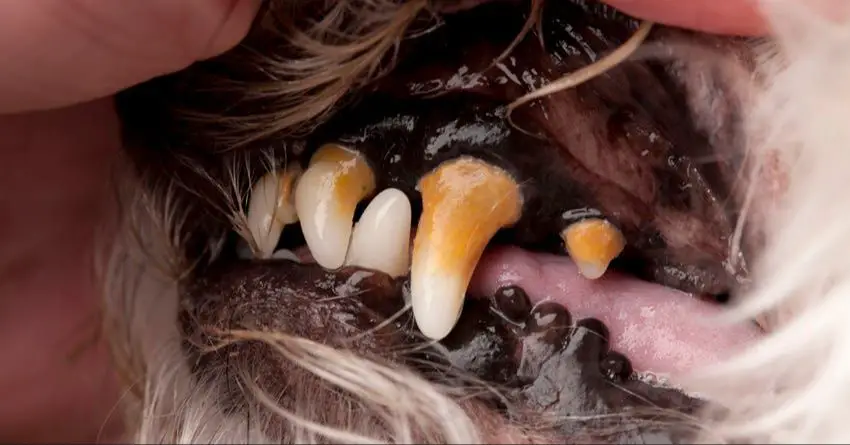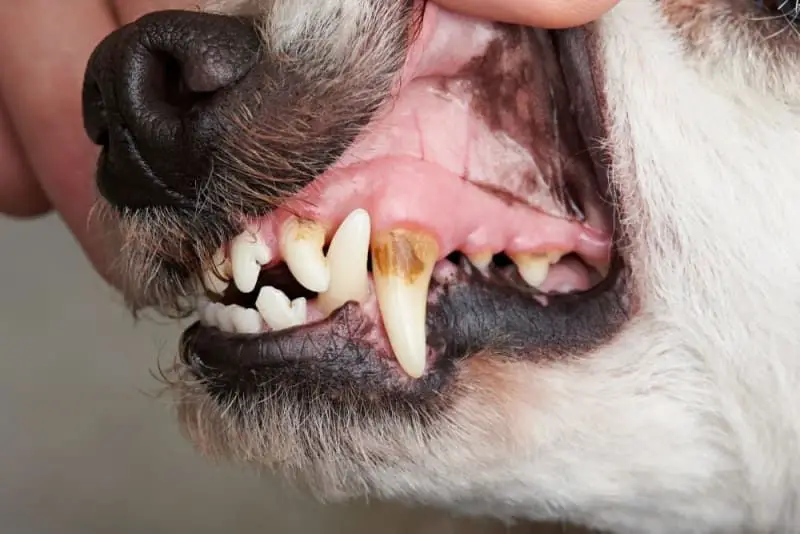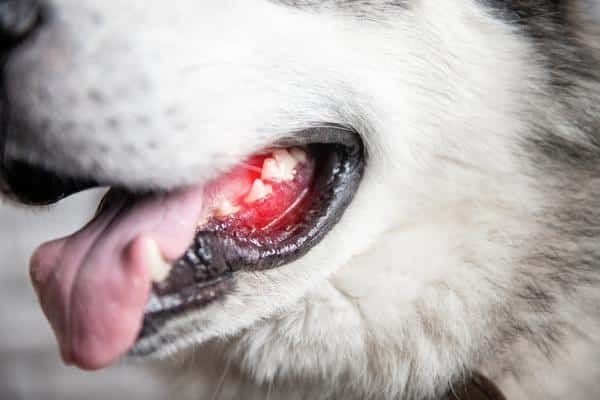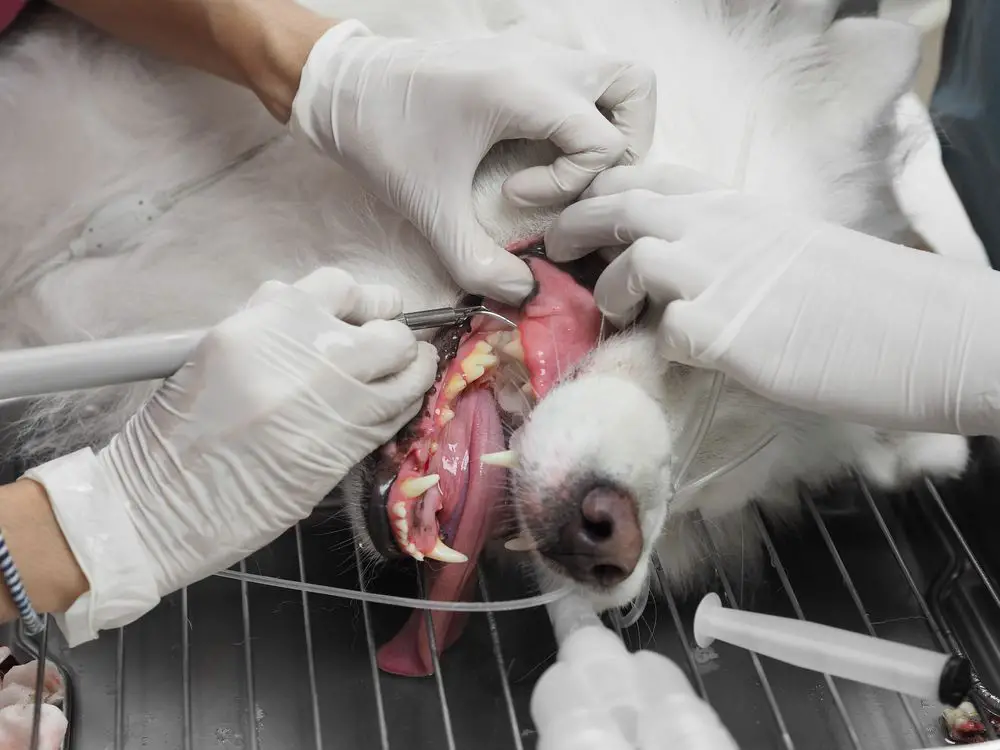Introduction
Oral health is extremely important for dogs, just as it is for humans. Poor dental care can lead to a number of health problems for dogs. That’s why regular teeth cleaning by a veterinarian is so critical.
A dog’s mouth is full of bacteria that form plaque on the surface of the teeth. If this plaque is allowed to build up, it will harden into tartar which can cause serious dental disease. Tartar buildup leads to infection and decay below the gumline. The longer tartar remains on the teeth, the more damage it can cause.
Getting your dog’s teeth professionally cleaned on a regular basis removes this harmful tartar and plaque, keeping your dog’s mouth healthy and preventing many problems down the road. Neglecting your dog’s dental care can negatively impact both their oral health and their overall wellbeing.
Plaque Buildup

Plaque is a thin, sticky film of bacteria that constantly forms on a dog’s teeth. Within 24 hours of a dog’s teeth being cleaned, plaque will start to reappear. The bacteria in plaque feed on food particles and produce acids that can damage tooth enamel. Over time, plaque hardens into tartar, a yellowish deposit that collects along the gumline and in cracks and crevices on teeth. Tartar contains even more bacteria that continue to produce acids and toxins. The longer plaque and tartar remain on a dog’s teeth, the more damage they can cause.
Gum Disease
Gum disease is extremely common in dogs and can have serious health consequences if left untreated. It typically starts as gingivitis, which is inflammation of the gums. Gingivitis causes red, swollen gums that bleed easily when touched or brushed. At this stage, gingivitis is reversible with professional dental cleanings and improved at-home dental care.
If gingivitis is not treated, it can advance to periodontal disease. With periodontal disease, inflammation spreads deeper below the gumline affecting the periodontal ligaments and tooth sockets. This causes destruction of gum tissue and jawbone. The spaces created by receding gums become infected, leading to pain, bad breath, and eventual tooth loss.
Periodontal disease is not reversible, and infected teeth need to be extracted. Professional dental cleanings and antibiotics may help slow progression in the early stages. But overall, periodontal disease has no cure except extraction. This is why regular dental cleanings and care are so important to prevent gingivitis from advancing to this point.
Tooth Decay
Tooth decay, also known as dental caries, refers to the destruction of the hard tissues of the tooth caused by the acids produced from plaque. Over time, plaque will accumulate on the tooth surface. The bacteria in plaque feed on the sugars and starches left in the mouth after eating. As they digest these carbohydrates, they produce acids that can dissolve through the enamel and reach the inner parts of the tooth. This decay process can eventually lead to infection of the tooth pulp, abscess formation, and tooth loss if left untreated.
The beginnings of tooth decay are often unseen. Your dog may not show obvious symptoms until the disease has progressed. However, some possible signs include: discolored or broken teeth, teeth that are sensitive to touch, teeth that appear worn down, foul breath, reduced appetite, and mouth pain. Dogs with advanced tooth decay may have loose teeth, bleeding or receding gums, pus around the teeth, swellings in the jaw, or behave in ways that indicate mouth discomfort.
Tooth decay is common in dogs who do not receive regular professional dental cleanings. The risk increases with age, as older dogs are more likely to have built-up tartar and plaque. Certain breeds like small dogs are more prone to dental problems. Diet also plays a role, with dogs fed soft and sticky foods at higher risk for decay. Without proper preventive dental care, most dogs will develop some degree of tooth decay.

Tooth Loss
If dental plaque is allowed to build up on a dog’s teeth over time, it can lead to periodontal disease. Periodontal disease causes inflammation and infection in the gums and bone tissue that surround and support the teeth. As periodontal disease progresses, the gums and bone recede from the teeth, forming “pockets” that become infected. This infection destroys the bone and connective tissue holding the teeth in place. Eventually, the teeth loosen and fall out.
In addition to periodontal disease, untreated tooth decay can also cause tooth loss in dogs. Plaque bacteria produce acids that erode and demineralize enamel, causing cavities to form. Decay can progress through the tooth and reach the pulp, causing a painful abscess at the root tip. Abscessed teeth often need to be extracted if the infection is severe.
By not receiving regular professional dental cleanings, plaque and tartar are allowed to build up on a dog’s teeth unimpeded. This mineralized plaque hardens into tartar and provides an environment for bacteria to thrive, leading to gum disease and tooth decay – the main causes of tooth loss in dogs. Regular cleanings disrupt plaque before it can mineralize into harmful tartar, helping prevent periodontal disease, cavities, and eventual tooth loss.
Pain and Discomfort
Poor dental health can lead to significant pain and discomfort for dogs. As plaque and tartar buildup on the teeth, it can cause inflammation and infection of the gums, a condition known as gingivitis. Gingivitis is quite painful, with swollen, reddened gums that are sensitive to touch. Dogs may react negatively when their mouths or faces are touched due to this discomfort.
If gingivitis progresses to periodontal disease, where the infection spreads deeper below the gumline, the pain worsens. The tissues and bone supporting the teeth become inflamed and deteriorated. This can expose sensitive tooth roots and nerves, leading to severe oral pain. Dogs may whine, yelp or snap when eating or playing with toys. The constant pain and discomfort from advanced dental disease is agonizing for dogs.
Abscessed teeth are also extremely painful. Pus builds up in the root or gumline of the affected tooth, causing severe throbbing pain. Dogs may paw at their mouths or rub their faces along the ground to try to relieve the pain of an abscessed tooth. This condition requires immediate veterinary treatment.
By not providing regular professional dental cleanings for a dog, plaque and tartar buildup can progress unchecked. This will likely lead to inflamed gums, infections and tooth decay that can cause significant oral pain and impact a dog’s quality of life.
Difficulty Eating
Dental disease can make it very difficult and painful for dogs to eat. As plaque and tartar build up on the teeth, it can cause inflammation and receding gums. This exposes the tooth roots and puts pressure on the jawbone. The result is often extreme discomfort when chewing hard kibble or treats.
The pain may cause dogs to avoid dry foods altogether and only eat soft foods. But even soft foods can be difficult to chew and swallow if there is significant dental disease. Dogs may start dropping food from their mouths, hesitating to bite down, or even refusing to eat entirely.
Lack of proper nutrition further exacerbates health problems. Dogs can experience weight loss, low energy, and complications in their digestive tract when they have trouble eating due to dental issues. Their overall health and quality of life will diminish without the nutrients they need.
Regular professional cleanings and exams are key to preventing this issue. A veterinarian can scale tartar from below the gumline, extract problematic teeth if needed, and recommend dental care routines to follow at home. Taking action before advanced dental disease sets in is crucial to help ensure your dog can comfortably enjoy their meals.
Behavioral Changes

Poor dental health can lead to significant pain and discomfort for dogs. This can cause changes in their behavior, including:
-
Decreased appetite or refusal to eat. The pain in their mouth makes eating uncomfortable.
-
Increased aggression or irritability. The constant pain puts dogs on edge, making them more prone to snapping or growling.
-
Excessive drooling. Pain can cause dogs to salivate more.
-
Pawing at their mouth or face. Dogs may try to rub or scratch at painful areas.
-
Chewing on one side of their mouth. If one side hurts, dogs may only want to chew on the other.
-
Dropping food or eating messy. Dental problems make grasping and chewing difficult.
-
Reluctance to play, go for walks, or engage in other normal activities. The pain saps their energy and enjoyment.
These behavioral changes are signs of underlying dental issues. Getting regular cleanings and addressing any problems early can prevent long-term pain and suffering.
Other Health Issues
Poor dental health can negatively impact a dog’s overall health and wellbeing. An accumulation of plaque and tartar can lead to inflamed gums and infections that allow harmful bacteria to enter the bloodstream. This bacteria can then travel to major organs like the heart, kidneys and liver.
Dogs with advanced dental disease are at higher risk for life-threatening conditions such as endocarditis (an infection of the heart valves) and glomerulonephritis (kidney inflammation). The bacteria from gum infections can also exacerbate problems in dogs that already have damaged organs.
Additionally, dogs with dental infections often have increased systemic inflammation. This chronic inflammation affects the entire body and has been linked to arthritis, heart disease, diabetes and cognitive dysfunction. Keeping a dog’s teeth clean isn’t just about their dental health – it can help prevent painful and potentially fatal diseases.
What happens if I never bring my dog to clean his teeth?
Regular Dental Cleanings

To keep your dog’s teeth healthy and free from disease, it is recommended to bring them for regular dental cleanings and exams with a veterinarian. Professional dental cleanings help remove built-up plaque and tartar that brushing alone at home cannot reach.
Veterinarians will scale and pollish the teeth to thoroughly clean above and below the gumline. A complete oral exam will also check for any signs of existing dental disease. Regular dental cleanings, usually done annually, can help prevent more serious dental problems from developing.
Cleanings allow veterinarians to identify and treat any potential issues early on before they become advanced, painful conditions. They also help reduce bacteria in the mouth that could lead to disease in other organs. Maintaining good oral health through professional dental care is an important part of keeping dogs happy and healthy.